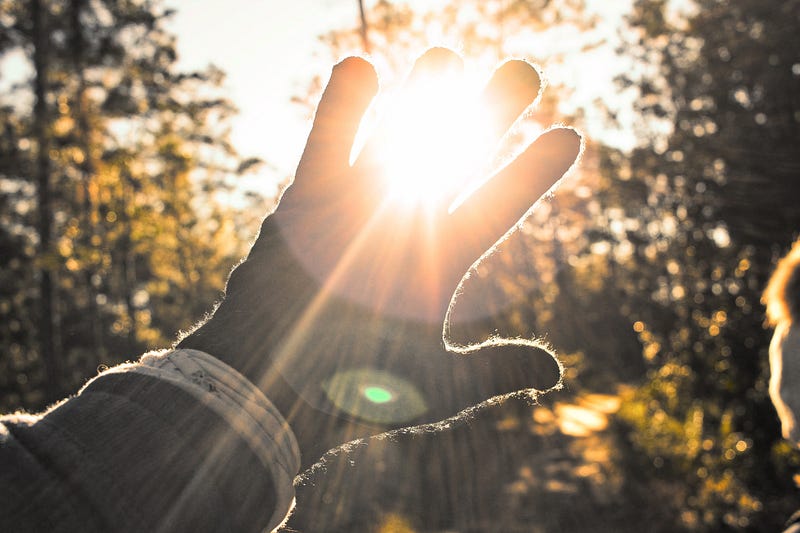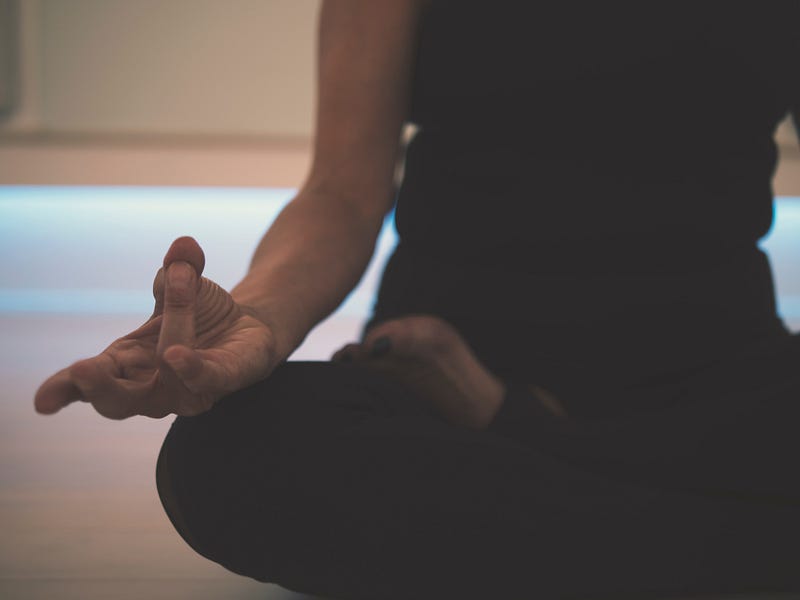Today, most people don’t have the privilege of getting a full night’s rest. Our lives are so adrenaline and stimulation fueled — phones, music, work, and play — that it leaves little time for anything else. When we do get the opportunity to sleep, it’s often less than we’d like, and we wake up feeling groggy and slow.
But here’s a secret: you can feel well rested with little sleep if you optimize your sleep habits around just three simple techniques.
I used to hate mornings. Now I love them. Let me share with you how I changed my life: 3 ways I feel well rested with little sleep.
Expose Yourself To Sunlight Before You Wake Up

Most people know that sun exposure is crucial to setting your daily rhythm. But did you know that the best way to feel well rested with little sleep is exposing yourself to sunlight before you wake up?
The human daily rhythm is set by your circadian clock — a set of biological processes that increase and decrease cyclically with time. These processes are responsible for the subjective feeling of ‘wakefulness’ and ‘well-restedness’, through circulating levels of cortisol, adrenaline, and many other compounds.
Most of these processes are ‘locked on’ to a master clock — the secretion of a simple chemical called melatonin. Since melatonin secretion is controlled almost exclusively by your exposure to light (like light that of the sun), you can kickstart your brain by blasting yourself with high light exposure.
The trick is to do it an hour or two before you wake, since melatonin secretion lags slightly behind your exposure to light. So to really benefit from this, open your blinds wide before you go to bed, or buy and program a sun lamp to brighten one to two hours before your wake-up time. You’ll get up feeling refreshed and clear-headed.
Do Something Incredibly Uncomfortable

Most people swear by cold showers. But the truth is, anything that’s sufficiently uncomfortable will work.
The reason is that your sense of wakefulness is determined by the levels of free-floating adrenaline and cortisol in your blood. These are stress chemicals released directly in response to potentially dangerous situations, and they lead to pupillary dilation, increased heart rate, and better attention.
To artificially kickstart this process, expose yourself to something very uncomfortable. If you’re afraid of heights, look over the rails of a very high building. Get your heart rate going. If you have social anxiety, purposefully put yourself in a social situation that scares you.
The increased heart rate and adrenaline will temporarily increase your focus, giving you an hour or two of significantly better performance. Think of it like a free espresso shot… without the espresso.
Put Your Brain On Pause Once Every Two Hours

One of the reasons you feel tired and groggy after getting little sleep is a lack of focus.
This problem is caused by your brain being unable to effectively inhibit irrelevant stimuli.
For example, if you can normally read just fine with the TV on in the background, you may find yourself unable to after getting very little sleep the night before, since your brain can’t inhibit noises from the TV as well as it usually does. Over time, your mind accumulates more and more of these irrelevant pieces of information until it bogs down your ability to be productive or focus on what you want.
To combat this, give your brain a five minute rest period once every hour or two. Engage in brief meditation; go into a dark, quiet room and breathe deeply. Try your best not to think of anything. If you do find yourself with an errant thought, acknowledge it and quickly move on. Meditation has been shown to help inhibit distractor stimuli, and that’s exactly what your brain needs right now.
Insummary, most people don’t get enough sleep. This makes them irritable, tired, and ultimately less productive.
But it doesn’t have to be that way. If you know how to combat your body’s built in biological clock, you can hotwire your brain to feel more rested without actually getting more rest. This can help you be more productive, maximize your alertness, and live a less volatile life.
Don’t just wait for the next time you get too little sleep — put measures in place today to make it happen. Buy that sun-clock, create a little meditation corner in your room, and come up with a few uncomfortable things to do next time you don’t get enough Z’s. Your future self will thank you.






